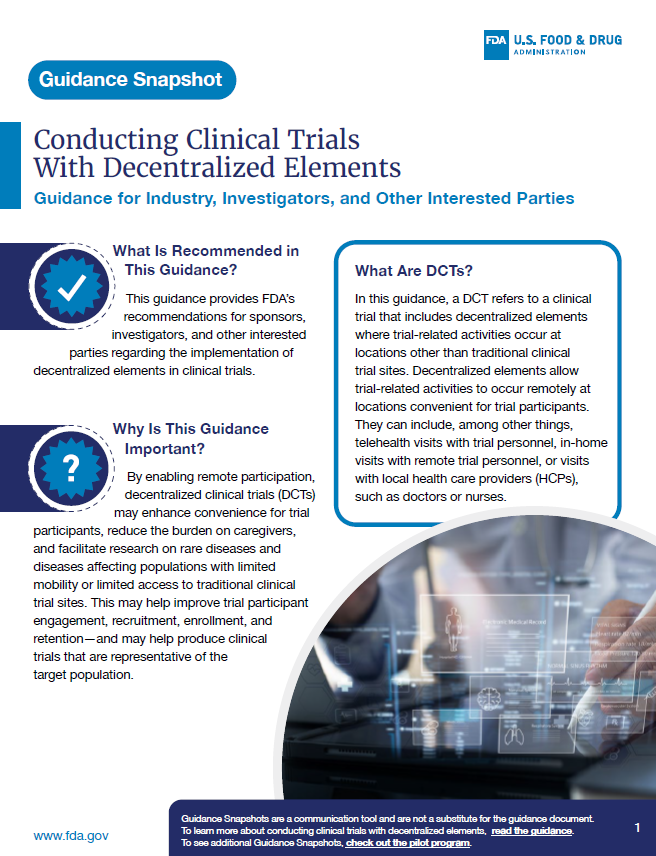FDA Issues Strategic Guidance on Decentralized Clinical Trials – A Turning Point for Medical Device and IVD Manufacturers
The FDA has released a new guidance titled “Conducting Clinical Trials with Decentralized Elements”, aimed at sponsors, investigators, and other stakeholders. This document outlines regulatory expectations for incorporating decentralized elements (DCTs) into clinical trial design.
DCTs involve the use of remote technologies and processes—such as telehealth visits, in-home procedures, digital health technologies (DHTs), and the involvement of local healthcare professionals (HCPs)—to reduce reliance on traditional trial sites.
For medical device and IVD manufacturers, the guidance provides clarity on several key points:
Device Use in DCTs: Investigational devices intended for home use may be suitable for use without direct investigator oversight, provided risks are low and instructions are clear.
Local HCP Involvement: Trial-related activities can be delegated to local HCPs if these tasks fall within their clinical scope and do not require detailed knowledge of the protocol or investigational product.
Remote Oversight & Consent: Informed consent may be obtained remotely. However, local HCPs should not perform this task.
Safety Monitoring: Sponsors must implement a monitoring plan adapted to decentralized trial settings, ensuring adequate reporting and follow-up of adverse events.
Data Integrity: Protocols should include measures to limit variability and bias in data collected through remote methods.
The guidance emphasizes that sponsor and investigator responsibilities remain unchanged, and all trial-related activities—regardless of location—must comply with Good Clinical Practice (GCP) requirements.
Download the full FDA guidance.
